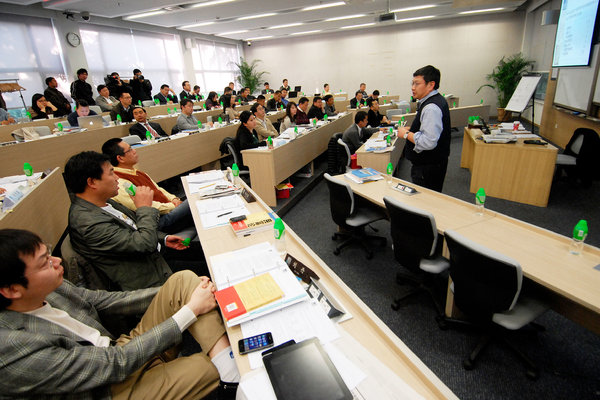
CKGSB Founding Dean Xiang Bing explains why Chinese senior executives are returning to graduate schools in an article by the New York Times. Dean Xiang also sheds light on how business education is now focusing on executives’ entire wealth equation—from why you do business to how you do business, and what to do with the money you have.
The article focuses on why executive education is thriving in China: Because many business executives grew up during the Cultural Revolution, they did not receive a solid education. Now in their 40s and 50s, these executives wish to gain a more solid foundation, understand where they have come from, and prepare themselves for a future in which the business practices of the past may no longer be viable.
Chinese business leaders are also exploring what their success means.
“Business schools in China are having some responsibility toward solving social problems in country,” said Xiang Bing, the founding dean at the Cheung Kong Graduate School of Business, which was established in Beijing in 2002 as the first private business school in mainland China.
“We have to look at the whole equation of wealth — why you do business, how you do business, and what to do with the money you have,” Mr. Xiang said.
The executive M.B.A. curriculum at Cheung Kong includes classes on philosophy, Eastern and Western religion, global history and literature.
“We hope our executive students can strive for enlightened lives — it may not be attainable, but it should be strived for,” Mr. Xiang said.
The growth of executive education, and business education in general, is expected to continue to grow in China.
Please read In China, Executives Flock Back to School for Unfinished Business on the New York Times website.